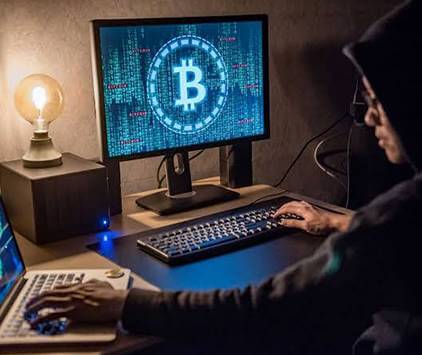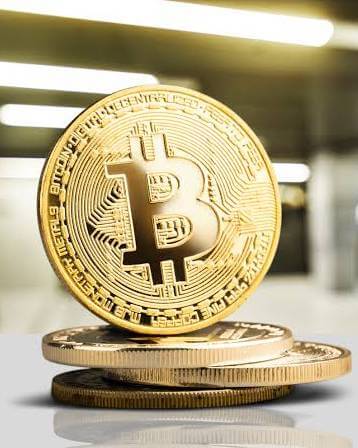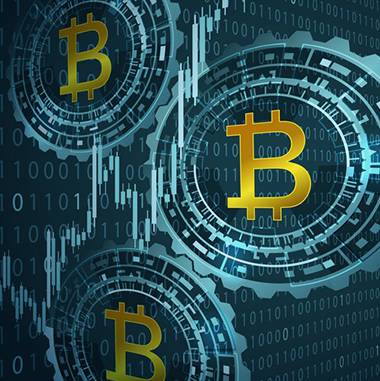
TRADERS IN YOUR COUNTRY
Warning: Due to extremely high media demand, we will close registration as of DD/MM/YYYY - HURRY mm:ss

This article is will focus on a glance behind the veils of the price instability of the Bitcoin crypto asset.
A Meek Initial Phase
In the Global Financial Crisis’ exit on the 2008 Halloween, an individual or group, alias Satoshi Nakamoto issued the bitcoin whitepaper. Bitcoin was later globally released on Jan. 9, 2009. Anybody could download a replica of the user to host a duplicate of the circulated ledger.
The first transaction was to Hal Finney, four days later, on Bitcoin. Hal received 10 Bitcoins from Satoshi Nakamoto. Adoption continued gradually, spreading between 2009 and ’13. The world’s most famed Bitcoin acquisition was made in 2010 by Laszlo Hanyecz. Hanyecz offered to pay 10k Bitcoins for anybody who would buy him two pizzas.
At the time, the offered 10k Bitcoins were valued at nearly $30, which is currently worth $103.6m. History now has a famous procurement named Bitcoin Pizza Day. Other than the historic moment, the crypto was marking its mark as a medium of payment.
BitPay had 1,000 dealers signed up to use the service by the third quarter of 2012. BitPay refers to a payment processor that allows dealers to accept Bitcoin. Due to the Bitcoin’s anonymity proposal, it surfaced as a standard payment choice on the dark web.
The FBI, in 2013, apprehended Silk Road, a dark web site, collecting 26k Bitcoin as a result of the apprehension. Then, it seized another 144k Bitcoins from Silk Road’s founder and former owner, Ross Ulbricht.
Bitcoin’s history is beleaguered with narratives of different possible use cases. However, it’s true that the crypto still brawls with resolve. While stressing on the issue, critics claim that Bitcoin is making attempts to solve inexistent problems. And so are other cryptos, they say.
According to Bitcoin's advocates, the crypto is expected to unravel the globe's financial difficulties in the future. A decade after it’s outset, the use of Bitcoin remains to be theoretical, from tech hurdles to branding matters.

There are many potentials that Bitcoin gives for the future. However, the Bitcoin’s $185.7bn market cap is now fueled by slightly more than its investor’s faith. Optimistic Bitcoin estimates flood the crypto news empire. A 2019 issued article claimed that the crypto could see $20,000 by mid-July, and $100,000 by the close of the year.
Despite the fans' claims, neither the Facebook’s Libra nor the Bitcoin ETFs are substantially contributing to the worth of Bitcoin. Although there are emphases on the predicted price, little to no channel about how the worth gets, it is stated.
The only thing that’s mentioned is how the Bitcoin price will increase when individuals continue to purchase it at its current pace. The statement denotes the following words: if Bitcoin continues its parabolic course. For established stockholders, this kind of reasoning will never work. Why the market is performing in that manner is the key concern.
Having said that, conviction a resilient fuel. It’s the power source for the current currency, religions, and governments. Faith has even pushed the worth of Bitcoin to $10k. But with just a limited acceptance (below $150bn market cap), fueling the market with only conviction leads to pricing instability.
Left deprived of a usage case, the Bitcoin crypto asset mainly exists in two places, including federal exchanges and supporter’s taciturn storage wallets. These locations are widespread, however, because they let the Bitcoin community to practice its conviction via assumption.
Taciturn storage wallets uphold a specific supply of Bitcoin outside of the market. Federal exchanges, on the other hand, offer a ground that assesses faith.
At the time of the inscription, the twenty-four-hour USD Bitcoin trade volume is nearly $13.7 billion. Therefore, at $10,400 per Bitcoin, that approximately equates to almost 1.3 million Bitcoin under transaction during the 24 hours. That volume is comparable to the publicly traded market’s Planet Fitness. Relatively, the market cap of Planet Fitness is just 5.8 billion.
However, unlike the stock exchange that Planet Fitness operates on, the Bitcoin exchange is not controlled. This simply means that there are fewer guidelines on liquidating assets. For instance, a Planet Fitness board member wishes to sell off a lot of shares. This will have to be publicized to the market. Also, it is typically noted in the 10-K statements filed to the SEC.
Bitcoin whales, on the other hand, can liquidate shares at will. They would not require to give any clarifications. As a result, huge spikes down or up for Bitcoin values are more frequently seen than on the stock market. After all, whenever a stakeholder loses confidence, they can liquidate all their Bitcoin incognito and instantly.

Bitcoin was designed as a method of performing digital, coequal transactions. At this point, however, the tech is not accessible. It is dependent on proof-of-work, a technique used to verify that a deal happened.
The advantage of using this method is that Bitcoin network users do not require names or conviction. Also, they are not reliant on third parties as to the central authority that has an ultimate say on a deal.
However, the benefits come at a rate of speed, as the Bitcoin network can only handle seven dealings per second. For more information on the particulars of the proof-of-work speed matter, click here.
Besides, every ten minutes, a block of transactions (blockchain derivative) is confirmed. However, the issue is that the block is only huge enough to fit so many dealings. For instance, you are making a purchase at Starbucks with Bitcoin. Your coffee acquisition is placed on the next batch and is confirmed under ten minutes if they're kind enough just to take one proof.
Otherwise, if there are numerous dealings before you, your coffee transaction may not make it into the next batch. Thus, your purchase is queued up for the subsequent batch. This queue is referred to as the mempool. Therefore, you have to wait for another twenty minutes, and without a guarantee.
There are, however, risks linked with just accepting one proof. But we will not look deep into that in this case. All being well, by now, you understand the point. Also, I hope that you can see how incumbering it will become even to purchase a cup of coffee using Bitcoin.
However, if you transact on federal exchanges, you may think that Bitcoin speeds are near-immediate. It’s an illusion. Here, the entire Bitcoin is stored in one location. That is, my Bitcoin and yours are together. Based on every trade, the exchange only manages a record and deducts a record of the Bitcoin you hold. Thus, the Bitcoin maximalist’s argument that you don’t actually own it lest you pocket it. So, you’re open to risk if it’s on an exchange.
One day, the exchange might vanish with all of your coins. Or, it may just flat-out refuse to offer you the coins you acquired.

In Bitcoin's current state, I trust that it's the only meaningful use case that it possesses a stock of worth, identical to gold. Although it has a potential of future value, it is an uncertain asset, for it has no practical worth. While a few people might trade short-term to hedge alongside the Bitcoin potential, the majority of individuals with it hold it for that bet.
As a stock of worth, Bitcoin has numerous promising properties. First, it can be possessed and simply stored. Bitcoin, unlike gold, irrespective of the quantity you own, it may be stored in a USB stick. Gold consumes physical space, and holding it in large amounts is noticeable.
Also, Bitcoin has a fixed amount. Globally, the number of accessible Bitcoin will be more than 21 million. While rare, gold endures to be mined, and the supply is continuously rising. Besides, Bitcoin is rigid to duplicate.
Even though scammers can vend to unaware purchasers, Bitcoin can't be forged. On the other hand, a cultured purchaser is in a position more likely to spot counterfeit Bitcoin. They can even spot it better than fake gold or money. How? The purchaser can just check the blockchain, which keeps a public database of each Bitcoin inflow.
Lastly, Bitcoin is gaining an extensive understanding due to public curiosity. According to the Google Search trends, there is three times more popular today in the search for the term Bitcoin. That is in comparison to the keyword search as it was in 2016. The late 2017s indicated peak popularity during the most current bubble.
While it is still far-off from status to gold, Bitcoin’s popularity is increasing. Besides, as more individuals start procuring Bitcoin, its rank as a stock of worth becomes more reliable.
As the Bitcoin community always develops more tech to layer on top of the Bitcoin blockchain, the usage cases for the digital cryptocurrency might grow in the future. For the time being, it remains an unscalable and a theoretical asset that is presently held as a stock of worth.